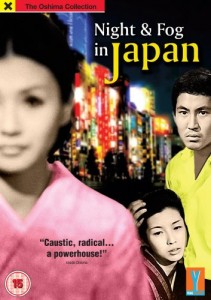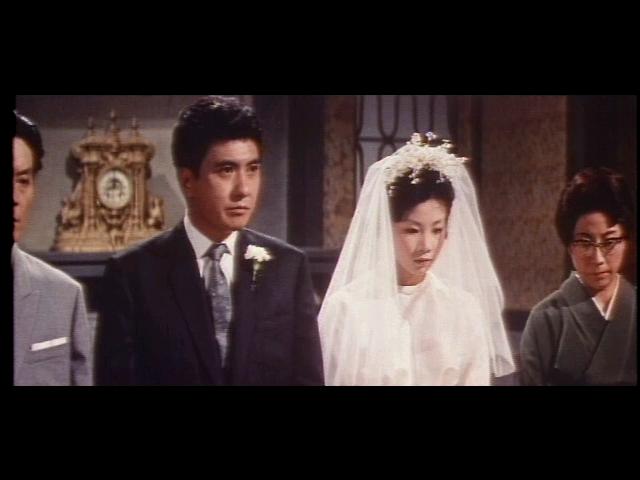“It’s the world-wide, peace-loving Americanism that is gaining in strength and oppressing the lives of us Japanese, and making the lives of our youth hopeless.”
|

Synopsis:
During a wedding, former revolutionaries in Japan reflect on love and betrayal during their years as students.
|
|
Genres, Themes, Actors, and Directors:
- Flashback Films
- Japanese Films
- Nagisa Oshima Films
- Revolutionaries
Review:
This deeply personal, highly politicized film by Japanese director Nagisa Oshima is a difficult film for Western viewers to grasp. It plunges us immediately into a period of Japanese history most will be unfamiliar with, and the back-and-forth storyline makes it hard to keep track of (or care much about) any of the individual characters. Although we quickly understand the basic gist of the film — former revolutionaries accuse one another in an attempt to solve the mystery of a tragic in-group death — ultimately Oshima keeps things too stylized (and talky) to generate much dramatic interest. Those curious about mid-century Japanese political movements will certainly want to check this one out; all others should be forewarned.
Redeeming Qualities and Moments:
- A sincere, sometimes powerful attempt to portray post-revolutionary guilt

Must See?
No; avoid watching it as your first Oshima experience.
Links:
|


One thought on “Night and Fog in Japan (1960)”
Not a must – in complete agreement with the assessment here.
Definitely not the Oshima film one should see first. It’s basically a polemic all but devoid of dramatic thrust, and its audience – one would think – would be comprised of those who agree that Japan has lost its isolated purity. (I can imagine Japan’s [in]famous writer Yukio Mishima watching this with his followers in a front row balcony.)
The more the story develops, the talkier it gets – to the ultimate appearance of third-rate soap opera (particularly with some of the ping-pong accusations near the end). Its overall tone is diffuse (causing a character-focus problem) and, unless one is really up on this period in Japanese history, one’s attention is apt to nap. Its conclusion is oddly inconclusive.
No doubt the film meant more to ‘insiders’ at the time of release; it proved controversial in Japan.
Much of Oshima’s work – even for diehard ffs – makes for tough viewing. To date, he is probably best-known in the U.S. for his notorious must-see, ‘In the Realm of the Senses’ (which I recall putting me off sex for, oh, about a week). In 1983, he gave us what I consider his best film, ‘Merry Christmas, Mr. Lawrence’ – then went on to make the delirious ‘Max, Mon Amour’ and the ponderous ‘Gohatto’ (‘Taboo’).